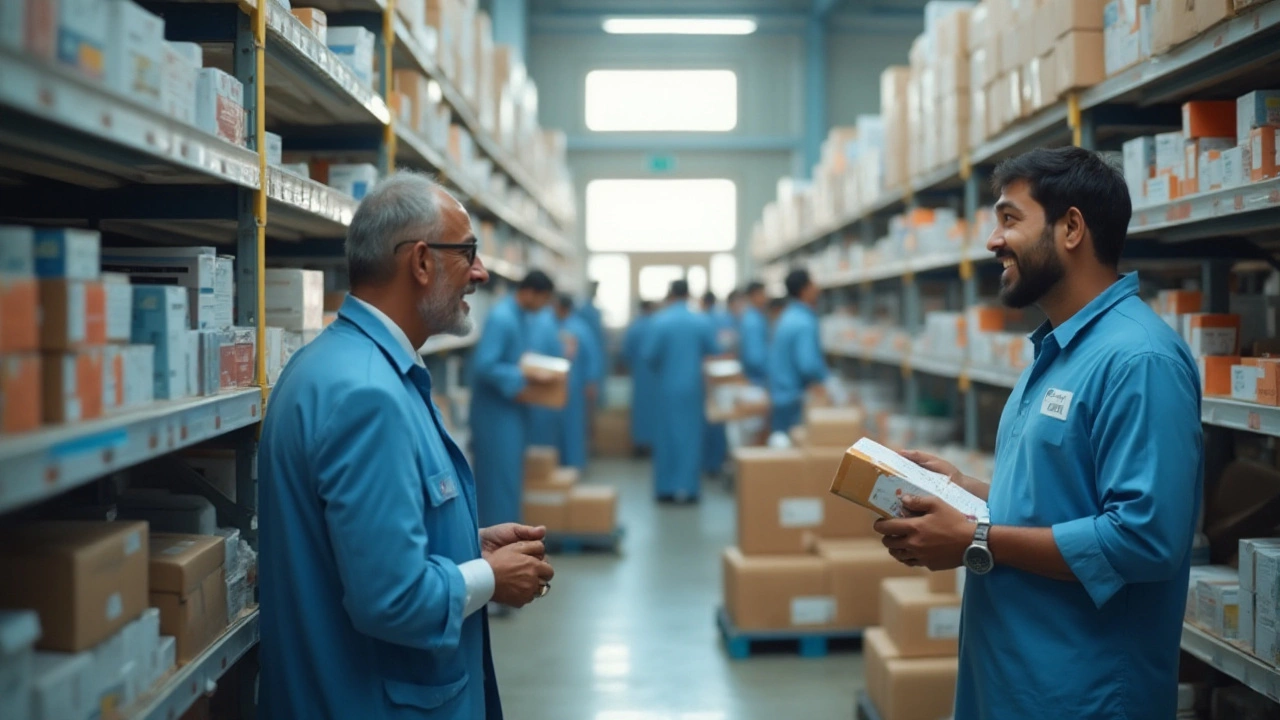Pharmaceutical Companies India – What You Need to Know
If you’ve ever wondered why so many medicines come from India, you’re not alone. India’s pharma scene mixes low cost, high volume and strong quality controls, making it a go‑to source for generic drugs worldwide. In the last few years the sector has added new plants, upgraded labs and pushed for greener processes. That means more choices for doctors, pharmacies and even home‑cooking health enthusiasts.
One big driver is the government’s push for self‑reliance. Policies like "Make in India" give tax breaks and faster approvals, so companies can launch new products quicker. At the same time, global regulators are tightening audits, which forces Indian firms to adopt Good Manufacturing Practices (GMP) and win certifications like WHO Pre‑Qualification. The result? Indian pharma brands are now on the shelves of hospitals in Europe, Africa and the Americas.
Key Players Shaping the Indian Pharma Landscape
While there are hundreds of manufacturers, a handful dominate the market. Dr Reddy’s Laboratories, for example, runs a global network of factories and is known for strong R&D pipelines. Sun Pharmaceutical Industries leads in volume, especially for pain relief and antibiotics. Cipla has built a reputation for respiratory medicines and affordable HIV drugs. Lupin focuses on cardiovascular products, and Aurobindo Pharma pushes into injectable and sterile medication.
These giants all share three habits: they invest in modern equipment, they keep a close eye on export regulations, and they regularly publish transparency reports. If you dig into their annual reports, you’ll see a clear pattern of expanding capacity while trimming waste – a sign that they’re ready for the next wave of demand.
How to Choose a Reliable Indian Pharma Supplier
Not every Indian manufacturer meets the same standards, so pick wisely. First, check for GMP certification and any recent FDA or WHO inspections. A clean audit report is a strong signal that the plant follows strict safety rules. Second, look at the product range – a supplier that makes both tablets and injectables can often offer better pricing because of shared facilities.
Third, ask for batch samples and stability data. If a company can quickly send you a sample that meets label specifications, they’re likely serious about quality. Finally, consider their after‑sales support. Good suppliers respond fast to queries, provide clear documentation, and help with customs clearance if you’re importing.
By following these steps you’ll reduce the risk of delays, recalls or poor product performance. It also builds a partnership that can grow as you add new drugs to your portfolio.
In short, India’s pharmaceutical companies are powering a global health shift. With competitive pricing, robust quality systems and a wave of new factories, the sector is set to stay at the forefront. Keep an eye on the big names, verify certifications, and you’ll find a reliable partner for any drug‑sourcing need.
Top Pharmaceutical Wholesaler in India: The Unseen Backbone
The pharmaceutical wholesale industry in India is a vital component of the healthcare system, ensuring that medications are available to pharmacies, hospitals, and clinics nationwide. This article explores the leading pharmaceutical wholesaler in India, their role in the supply chain, and the impact they have on making medicines accessible. We delve into the dynamics of the pharma distribution network and provide insights into upcoming trends. A must-read for those who want to understand the hidden gears driving India's pharma sector.
View More




